Advanced Septic and Grease Trap Equipment and Techniques
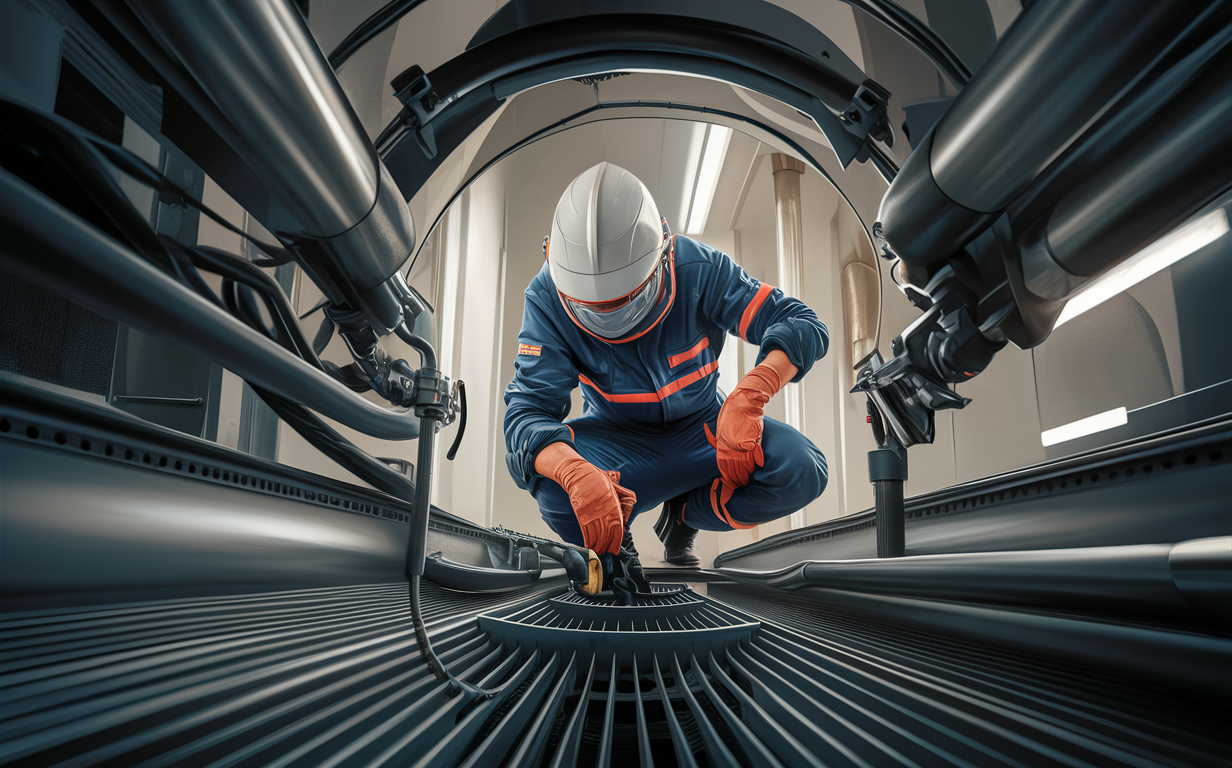
Advanced septic and grease trap equipment and techniques are critical for maintaining a reliable and efficient wastewater management system. Whether you’re a homeowner or a business owner, understanding these advanced methods can save you from costly repairs and keep your system running smoothly.
Table of Contents
Key Takeaway
- Advanced Septic and Grease Trap Equipment and Techniques utilize modern technology to improve efficiency and durability.
- Grease trap equipment is essential for preventing clogs and ensuring smooth operations in commercial kitchens.
- Regular maintenance and the use of specialized techniques can prolong the life of your septic and grease trap systems.
- Experienced professionals equipped with the right tools can diagnose issues early and provide effective solutions.
Advanced Septic and Grease Trap Equipment and Techniques: Modern Solutions for Old Problems
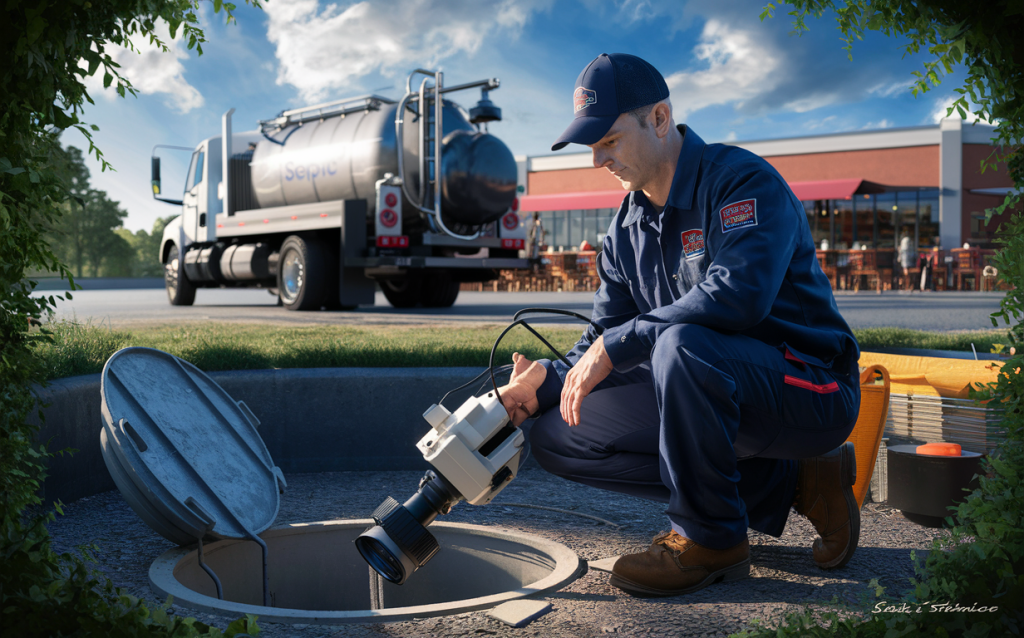
Septic systems have come a long way from basic tanks and pipes. Advanced septic and Grease Trap Equipment and Techniques incorporate that not only ensure better performance but also greater longevity. Innovations such as aerobic treatment units (ATUs), recirculating sand filters, and biofilters have revolutionized septic treatment.
Aerobic Treatment Units (ATUs)
ATUs inject oxygen into the treatment tank, promoting the growth of aerobic bacteria that break down waste more efficiently than anaerobic bacteria. This leads to cleaner effluent and a reduced risk of groundwater contamination.
Recirculating Sand Filters
These systems filter effluent through layers of sand, providing an additional level of purification. The filtered water is then recirculated back through the system for further treatment, ensuring that the final output is as clean as possible.
Biofilters
Biofilters use organic materials like peat or coconut fibers to treat effluent. These materials promote the growth of beneficial microorganisms that help break down contaminants.
Grease Trap Equipment: Keeping Your Pipes Clear
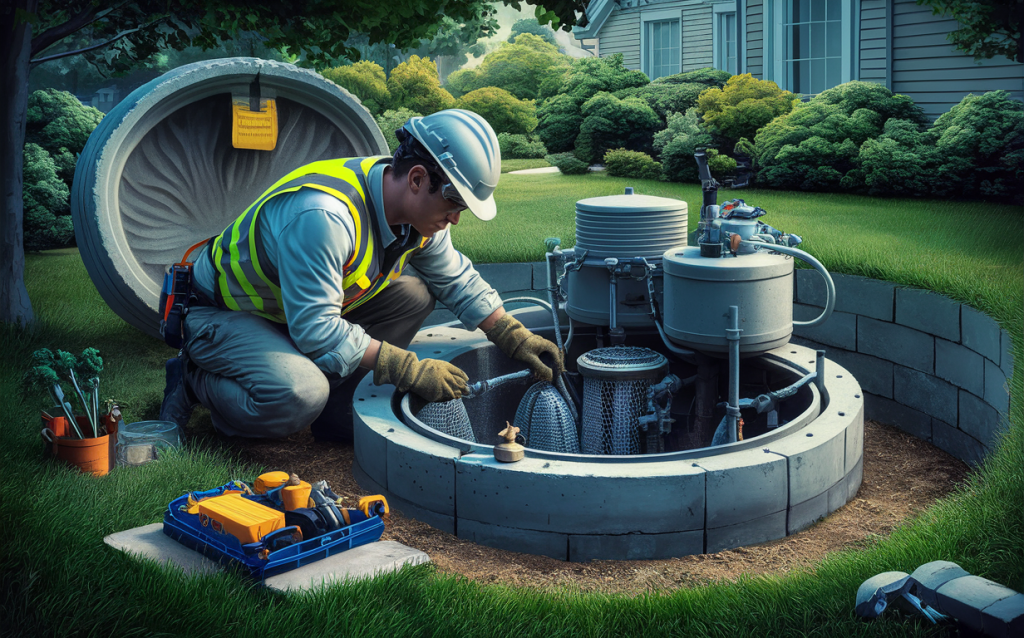
Grease traps are essential for commercial kitchens, preventing fats, oils, and greases (FOGs) from clogging your plumbing. Advanced septic and grease trap equipment and techniques, such as automatic grease removal devices (AGRDs) and high-efficiency hydro-mechanical grease interceptors (HEHGIs), offer superior performance and ease of maintenance.
Automatic Grease Removal Devices (AGRDs)
AGRDs automatically skim off accumulated grease from the surface of the trap, depositing it into a separate container for easy disposal. This reduces manual cleaning and ensures that the trap functions efficiently.
Automatic Grease Removal Devices (AGRDs) are specialized systems designed to intercept and remove fats, oils, and grease (FOG) from wastewater in commercial kitchens and food processing facilities.
These devices operate automatically, using advanced separation techniques to trap grease before it can enter the plumbing system and cause blockages or environmental contamination. By continuously skimming and collecting FOG, AGRDs not only enhance kitchen efficiency but also help businesses comply with local wastewater regulations. Their use is a proactive measure in reducing maintenance costs and promoting sustainable waste management practices.
High-Efficiency Hydro-Mechanical Grease Interceptors (HEHGIs)
HEHGIs use advanced separation techniques to capture FOGs more effectively. These interceptors can handle higher volumes of waste and are easier to clean than traditional grease traps.
High-efficiency hydro-mechanical Grease Interceptors (HEHGIs) are advanced systems designed to efficiently separate fats, oils, and grease (FOG) from kitchen wastewater. Unlike traditional grease traps, HEHGIs use a combination of flow control, air entrainment, and specialized internal baffling to rapidly trap and isolate FOG particles, preventing them from entering the plumbing system.
These interceptors offer superior performance in high-flow environments, ensuring minimal maintenance and reducing the risk of costly blockages or environmental violations. Their compact design and high separation efficiency make them a preferred choice for commercial kitchens and food service establishments committed to sustainable and compliant operations.
The Importance of Regular Maintenance
Regular maintenance is crucial no matter how advanced your septic or grease trap system is. Scheduled inspections and cleanings can prevent minor issues from becoming major problems.
Regular maintenance is crucial for the efficient functioning and longevity of septic systems and grease traps. Without routine upkeep, these systems can become overwhelmed, leading to unpleasant odors, costly backups, and potential environmental hazards.
Advanced septic and grease trap equipment and techniques, such as high-efficiency hydro-mechanical interceptors and automatic grease removal devices, are designed to enhance performance and ease of maintenance. These modern technologies, combined with innovative techniques like proactive pumping schedules and remote monitoring, help ensure that waste is effectively managed, reducing the risk of system failures.
By investing in regular maintenance and utilizing state-of-the-art equipment, businesses and homeowners can protect their properties, comply with environmental regulations, and contribute to a cleaner, safer environment.
Septic System Maintenance
Regular pumping and inspections are key to a healthy septic system. Modern diagnostic tools like video inspections and electronic locators allow professionals to identify potential problems early.
Grease Trap Maintenance
In commercial settings, grease traps should be serviced regularly to prevent blockages. Hydro-jetting can thoroughly clean your trap and pipes, reducing the risk of clogs and backups.
Grease trap maintenance is essential for preventing clogs and ensuring smooth operations in commercial kitchens. Over time, fats, oils, and grease (FOG) accumulate in grease traps, reducing their effectiveness and potentially leading to costly plumbing issues or environmental violations.
Advanced septic and grease trap equipment and techniques, such as automatic grease removal devices (AGRDs) and high-efficiency hydro-mechanical grease interceptors (HEHGIs), are designed to enhance the separation and capture of FOG. Techniques like regular pump-outs, hydro-jetting, and biological treatments can further optimize system performance.
By combining proactive maintenance with cutting-edge technology, businesses can extend the lifespan of their grease management systems, reduce downtime, and maintain compliance with local wastewater regulations.
The Role of Experienced Professionals
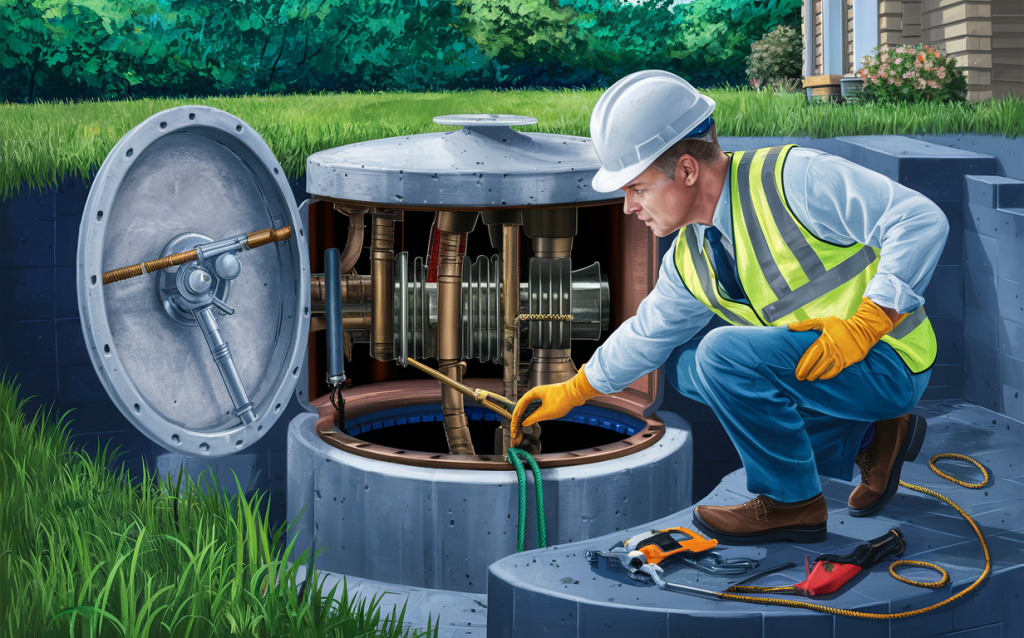
The right equipment is only half the battle; skilled professionals are essential for effective maintenance and repairs. Companies like Texway Wastewater Services employ technicians with years of experience and the latest tools to ensure Advanced Septic and Grease Trap Equipment and Techniques are in top shape.
Experienced professionals play a pivotal role in maintaining the health and functionality of septic systems and grease traps. Their expertise ensures these systems operate efficiently, preventing costly malfunctions and environmental damage.
Using advanced septic and grease trap equipment and techniques like high-efficiency hydro-mechanical grease interceptors (HEHGIs) and automatic grease removal devices (AGRDs), these specialists can effectively manage fats, oils, and grease (FOG) buildup. Techniques such as hydro-jetting, thorough inspections, and tailored maintenance schedules further optimize system performance.
By relying on skilled technicians equipped with cutting-edge tools and methods, businesses and homeowners can protect their investments, comply with regulations, and promote sustainable waste management practices.
Diagnostic Tools
Advanced diagnostic tools such as thermal imaging cameras and pressure testing equipment help professionals pinpoint issues quickly and accurately.
Diagnostic tools are essential for accurately assessing the condition of septic systems and grease traps, enabling proactive maintenance and timely repairs. Advanced Septic and Grease Trap Equipment and Techniques like sewer cameras, electronic locators, and remote monitoring systems provide real-time data on the system’s performance and identify issues such as blockages, leaks, or structural damage.
These technologies, combined with techniques like hydro-jetting, thermal imaging, and bio-based treatments, allow professionals to diagnose problems with precision and implement effective solutions.
Utilizing these cutting-edge tools and methods not only extends the lifespan of septic and grease management systems but also helps businesses and homeowners avoid costly disruptions and maintain compliance with environmental regulations.
Repair Techniques
Modern repair techniques like trenchless pipe repair and bioremediation offer efficient solutions with minimal disruption to your property. Modern repair techniques, coupled with Advanced Septic and Grease Trap Equipment and Techniques, enable effective and minimally invasive solutions for maintaining and restoring these critical systems.
Methods such as trenchless technology, including pipe bursting and cured-in-place pipe (CIPP) lining, allow for the repair of damaged pipes without extensive digging, preserving landscapes and reducing downtime. For grease traps, techniques like hydro-jetting and vacuum pumping effectively remove stubborn blockages and accumulated fats, oils, and grease (FOG).
Advanced Septic and Grease Trap Equipment and Techniques like high-efficiency hydro-mechanical grease interceptors (HEHGIs) and automatic grease removal devices (AGRDs) further streamline maintenance by optimizing FOG separation and capture. By leveraging these innovative repair techniques and technologies, professionals can extend the lifespan of systems, minimize disruptions, and ensure compliance with environmental standards.
Comparison of Advanced Septic Systems
| Feature | Aerobic Treatment Units | Recirculating Sand Filters | Biofilters |
|---|---|---|---|
| Oxygen Injection | Yes | No | No |
| Effluent Quality | High | Moderate | High |
| Contaminant Breakdown | Aerobic Bacteria | Physical Filtration | Microorganisms |
| Maintenance Requirements | Moderate | Low | Low |
| Initial Cost | High | Moderate | High |
Grease Trap Equipment Efficiency
| Equipment Type | Efficiency | Maintenance Level | Ideal Use Case |
|---|---|---|---|
| Automatic Grease Removal Devices | High | Low | High-volume commercial kitchens |
| High-Efficiency Hydro-Mechanical Traps | High | Moderate | Restaurants and food processors |
| Traditional Passive Grease Traps | Moderate | High | Small cafes and diners |
Common Septic System Issues and Solutions
Clogs and Slow Drains
Solution: Regular pumping and the use of bio-based additives can help break down fats, oils, and grease (FOG) while preventing buildup and maintaining free-flowing pipes.
Tree Root Intrusion
Solution: Installing physical barriers around the septic system and scheduling regular inspections can help detect and prevent root intrusion before it causes serious damage.
System Overload
Solution: Reducing water usage, spreading out laundry loads, and being mindful of overall water consumption can prevent overloading the septic system, ensuring it operates efficiently.
Tank Damage
Solution: Professional repairs, using advanced methods such as trenchless technology, can address tank cracks or leaks without extensive excavation, preserving the integrity of the system.
Unpleasant Odors
Solution: Improving ventilation and installing biofilters can help neutralize foul odors, keeping the environment around the septic system and grease traps pleasant and odor-free.
Conclusion
By adopting advanced septic and grease trap equipment and techniques, you can ensure your wastewater systems run efficiently and avoid costly repairs. Whether you’re dealing with a complex commercial setup or a simple residential system, these innovations can make a significant difference.
For more information on Advanced Septic and Grease Trap Equipment and Techniques, contact Texway Wastewater Services at (817) 889-4007 or visit their website.
Texway Wastewater Services LLC 880 Prairie Timber Rd Burleson, TX 76028 Phone: 817-889-4007 Website: Texway Wastewater Services

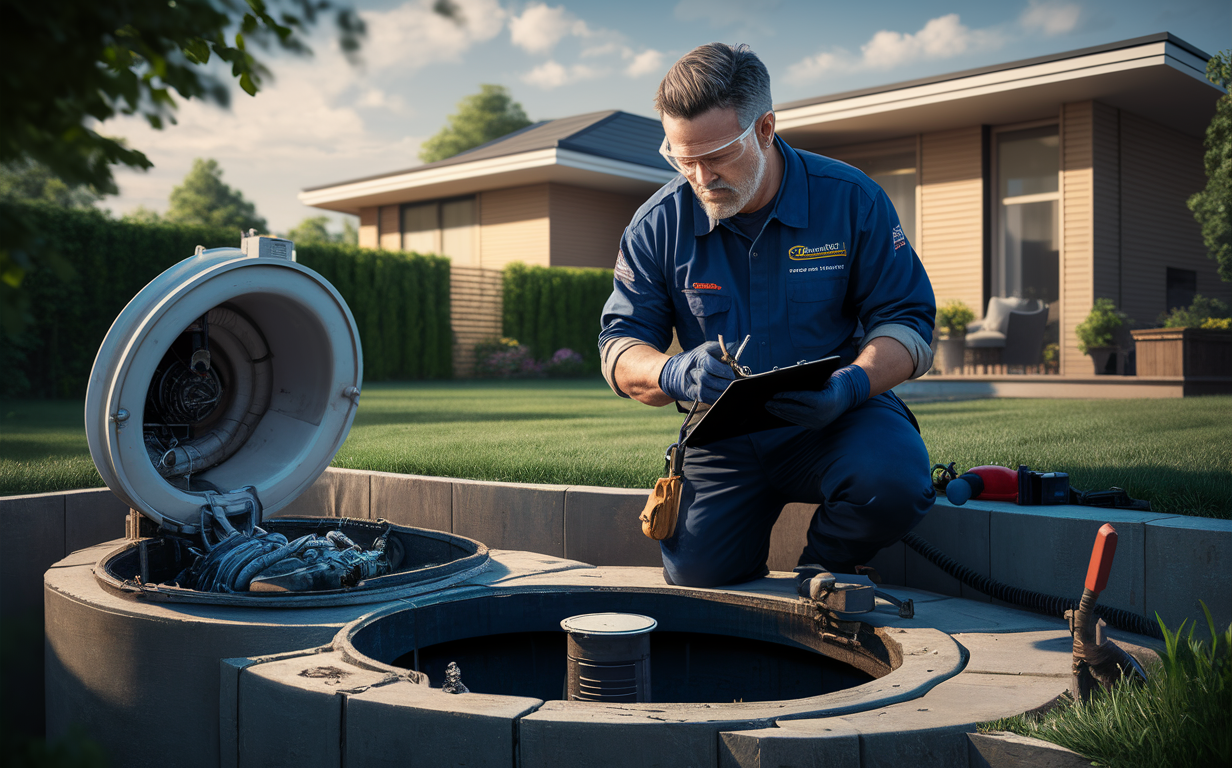

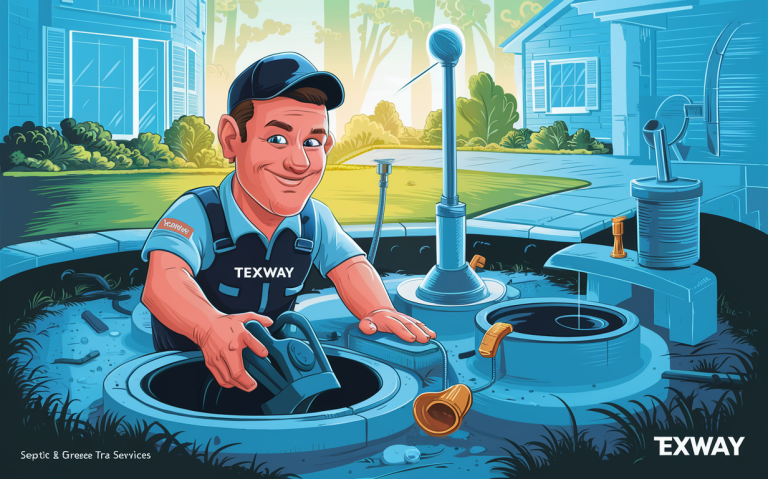
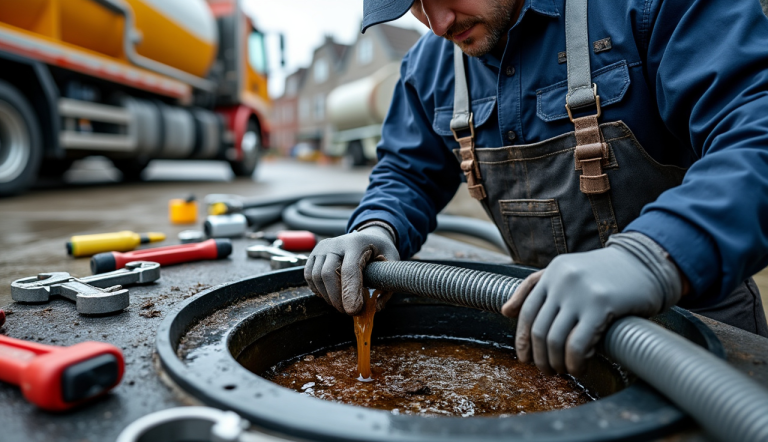
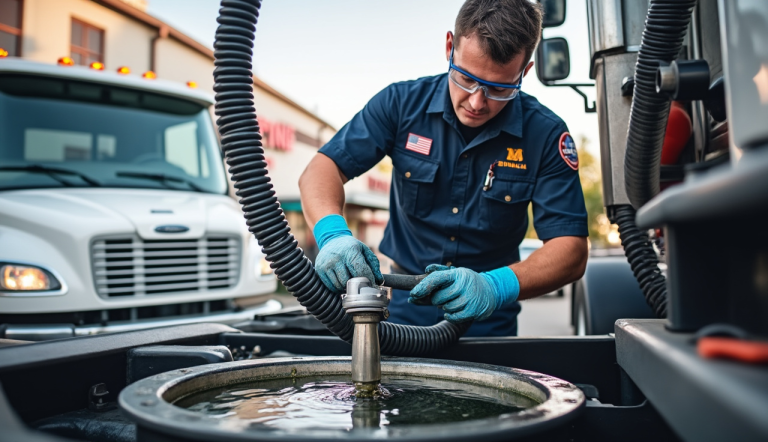
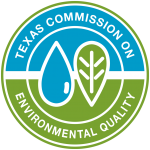 Texway Wastewater Services is a septic, wastewater, and excavation company based out of Burleson, Texas and serving the surrounding areas. We specialize in
Texway Wastewater Services is a septic, wastewater, and excavation company based out of Burleson, Texas and serving the surrounding areas. We specialize in